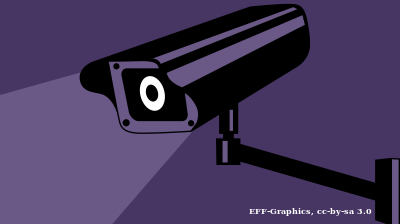Japan’s once-unshakeable auto industry is facing a dramatic reckoning as major manufacturers struggle with tumbling profits, global trade tensions and internal upheaval. In just the past few days, both Honda and Nissan have laid bare the extent of the crisis in back-to-back announcements, painting a stark picture of an industry under siege, reports Japan Today citing AFP.
Honda, Japan’s second-largest automaker, forecast a massive 70% drop in net profit for the 2025-26 financial year, citing the mounting cost of US trade tariffs and sluggish overseas sales performances. As a result, the company expects net profit to fall to JPY250bn ($1.7bn), down from JPY835bn the previous year – a figure that itself missed earlier projections by over JPY110bn.
“The impact of tariff policies in various countries on our business has been very significant and frequent revisions are being made, making it difficult to formulate an outlook,” Honda CEO Toshihiro Mibe was reported as saying at a press briefing.
Honda estimates tariffs and related recovery efforts will wipe JPY450bn from its operating profit over the coming year. President Donald Trump’s decision last month to slap a 25% tariff on imported vehicles in an effort to revitalise the US auto sector has hit Japanese automakers especially hard.
Still, analysts suggest Honda may weather the storm better than some of its peers. The company builds more than 60% of the vehicles it sells in the US domestically, the highest proportion among major Japanese carmakers. “That means the impact from tariffs will be comparatively smaller for Honda,” Tatsuo Yoshida, an auto analyst at Bloomberg Intelligence was reported as saying.
Nevertheless, Honda is not immune to broader global challenges. Mibe noted that sales in China and Southeast Asia had dropped, while EV incentives in North America added pressure despite stronger hybrid sales.
Meanwhile, Nissan's troubles run even deeper.
The company posted a staggering annual net loss of JPY670.9bn ($4.5bn), its second-worst result in the company’s history. It has now embarked on a dramatic restructuring plan that includes cutting around 15% of its global workforce and consolidating vehicle production plants from 17 to 10 by fiscal 2027.
Nissan’s difficulties are compounded by its ageing product line and inability to keep pace with Chinese electric vehicle manufacturers. Plans to build a $1bn battery plant in southern Japan have been shelved due to the “tough business environment”, the company said.
Ratings agencies meanwhile have downgraded Nissan to junk status, with Moody’s citing “weak profitability” and “ageing model portfolio”. The carmaker's shares have plummeted nearly 40% over the past year.
Unlike Honda, Nissan is expected to be more severely impacted by the new tariffs. “Nissan’s customers are historically more price-sensitive,” noted Bloomberg’s Yoshida in speaking to AFP. “They can’t pass the costs on to consumers to the same extent as Toyota or Honda without suffering a significant loss in sales units.”
A much-speculated merger between Honda and Nissan had been seen as a potential stabilising move but collapsed in February, reportedly after Honda proposed making Nissan a subsidiary – an idea Nissan rejected.
The twin disclosures from Honda and Nissan underscore how devastating tariff uncertainty, EV disruption and internal financial strain are converging to threaten Japan’s automotive dominance and while the full extent of Trump’s trade policy fallout is still to be realised, it’s clear that Japan’s iconic carmakers are entering one of their most challenging periods in decades.
News

Bill Gates makes surprise Indian TV debut
In a move set to spark both intrigue and curiosity, Microsoft co-founder and philanthropist Bill Gates has made a cameo appearance on Indian television, entering the iconic drama series Kyunki Saas Bhi Kabhi Bahu Thi 2.

Queen Sirikit of Thailand dies
The death of Queen Sirikit of Thailand has marked the end of an era for the Thai monarchy. According to an official statement from the Bureau of the Royal Household of Thailand, Her Majesty died at 9.21 pm on October 24.

Pakistan, the latest in Asia to see gold prices plummet
In international trading, the precious metal lost $35 per ounce to settle around $4,115, extending a week-long slide triggered by shifting expectations over US monetary policy.
_1761305900.jpg)
Latin America edges up growth forecasts but remains trapped in low gear, ECLAC says
Latin America and the Caribbean will expand 2.4% this year, the Economic Commission for Latin America and the Caribbean said, marking the second upward revision since April but pointing to the region's struggle to escape chronically weak growth.




